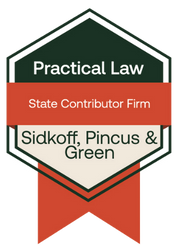Sexual Comments and Hostile Work Environment

Sexual Comments Must Rise Beyond “Mere Utterance” To Create a Hostile Work Environment
When considering conduct at the workplace to rise to the level of a hostile work environment claim, it is important to know that not every sexual joke can create a hostile work environment. “The mere utterance of an epithet, joke, or inappropriate taunt that may cause offense does not sufficiently affect the conditions of employment to implicate Title VII liability.” Weston v. Pennsylvania, 251 F.3d 420, 428 (3d Cir.2001).
In one particular case, co-workers’ conduct was pervasive and offensive enough to not be considered “ordinary tribulations of the workplace.” Brown-Baumbach v. B&B Auto., Inc., 437 F. App’x 129, 134 (3d Cir. 2011). A few examples of the conduct in Brown-Baumbach included a joke that she “creamed her pants” after spilling ice cream, rumors of plaintiff and a supervisor “getting it on,” and the supervisor telling plaintiff that heels “turn him on.” 437 F. App’x at 131-32. The conduct however, must also be directed towards the specific employee in order to have a valid hostile work environment claim. See Betz v. Temple Health Sys., No. 15-CV-00727, 2015 WL 4713661, at *4 (E.D. Pa. Aug. 7, 2015). In Betz, the plaintiff’s fellow female coworkers regularly engaged in inappropriate conduct, such as pretending to grope each other daily or suggesting inappropriate ways to avoid a speeding ticket from a cop. Id. at *1. Although the court recognized this kind of behavior should not be in the workplace, their behavior was not aimed specifically at the plaintiff and in fact were “equal opportunity offenders.” Id. at *4.
An example of language that fails to meet the tough burden of a hostile work environment claim can be found within Spangler v. City of Philadelphia, 523 F. App’x 142 (3d Cir. 2013). In Spangler, a male supervisor referred to the plaintiff as a “bitch.” Id. at 146. The court acknowledged the “reprehensible nature” of the language, but did not find enough for discrimination just because the word has “‘sexual content or connotations.’” Id. (citing Oncale v. Sundowner Offshore Services, Inc., 523 U.S. 75, 80 (1998)).
For more information, contact our Philadelphia sexual harassment lawyers at Sidkoff, Pincus & Green at 215-574-0600 or contact us online.



















